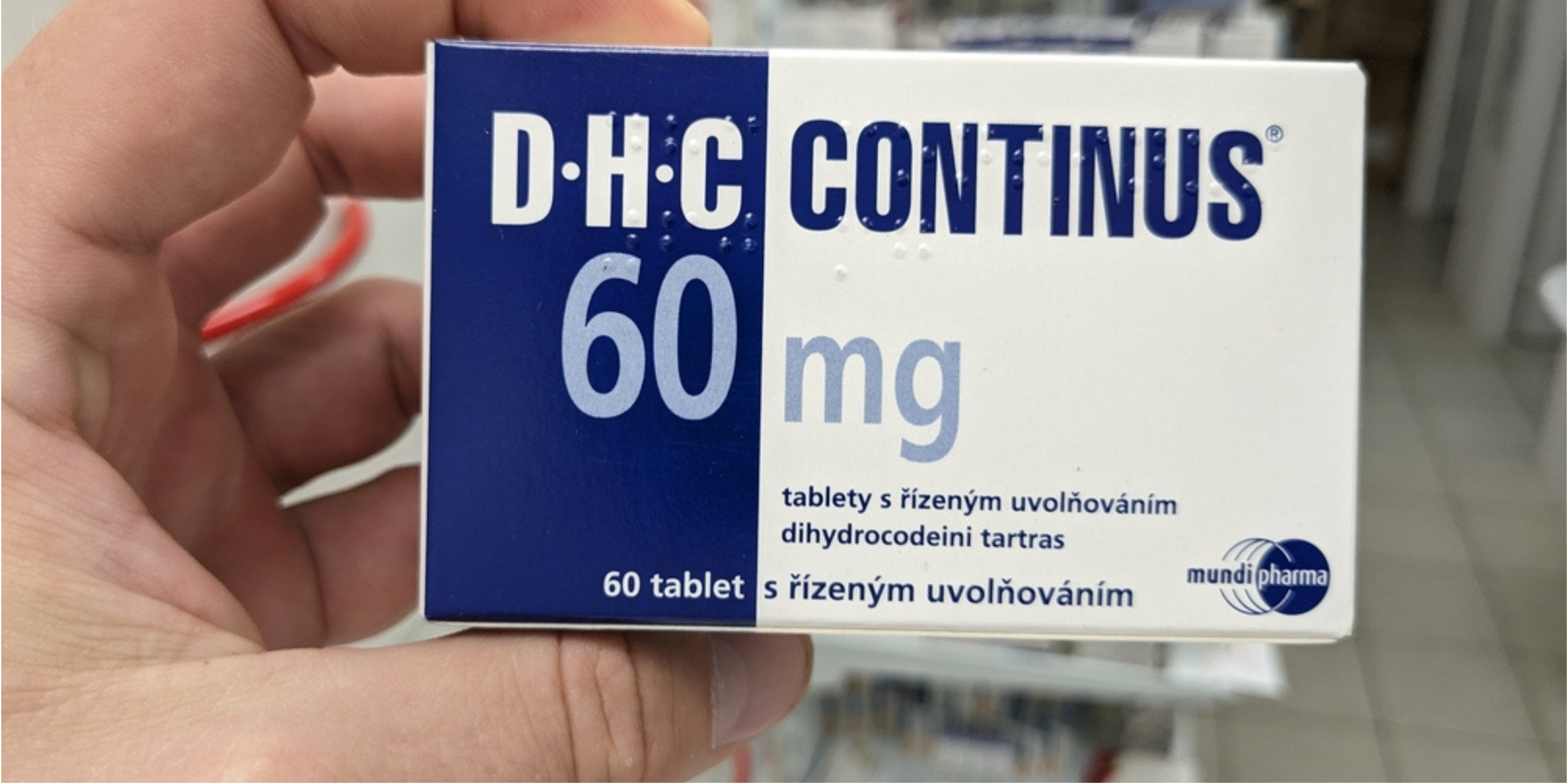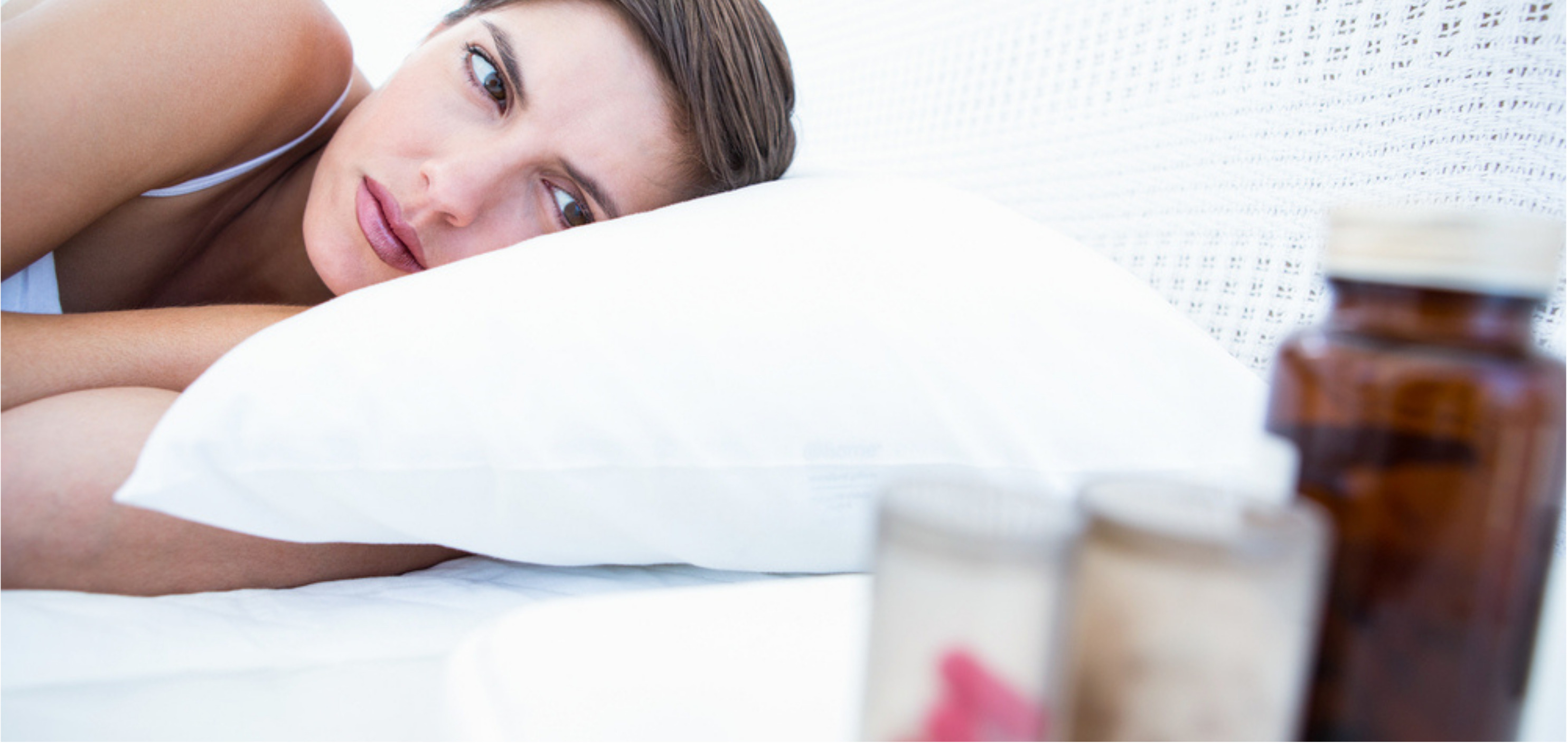Dihydrocodeine Addiction | Signs, Symptoms and Effects
Dihydrocodeine is a heavy-duty painkiller that is often reserved for big pain challenges like post-surgery recovery or cancer-related discomfort. In these situations, dihydrocodeine can be life-changing, helping people cope with pain that could otherwise be unbearable. However, the very qualities that make dihydrocodeine effective also make it risky, and dihydrocodeine abuse can lead to nasty side effects and a serious danger of addiction. Dihydrocodeine addiction can unravel and even threaten your life, so it is important you know the signs and how to get help.

What is dihydrocodeine?
Dihydrocodeine is an analgesic which was first synthesised from codeine in the early twentieth century to make codeine’s natural effects stronger. It works by significantly calming your body’s pain signals and can also help with chronic and severe coughs and even some breathing issues.
Unfortunately, the medicine’s soothing effects also make dihydrocodeine abuse a big possibility. This is because taking a large amount of dihydrocodeine, especially if you don’t need it for pain, can create a relaxed, carefree high. This can seem very pleasant, but dihydrocodeine abuse comes with serious consequences, including dizziness, nausea, opioid addiction and a potentially deadly dihydrocodeine overdose.
What is dihydrocodeine addiction?
Dihydrocodeine addiction is when you find yourself needing the drug more and more, even though it’s doing you harm. It can stem from a legitimate prescription, self-medicating for some personal issue or from chasing its relaxing effects, but the result is a physical and psychological dependence that soon takes over your life.
The more you take dihydrocodeine, the less effective it becomes. To then get high or relieve pain, you have to increase your dose, keeping your system flooded with dihydrocodeine. This causes your brain to start leaning on dihydrocodeine to do its job, and when you stop or cut back, your brain panics, triggering horrible withdrawal symptoms.
But dihydrocodeine addiction goes much deeper than this physical level. Over time, dihydrocodeine also becomes your mental crutch, a way to cope with stress, trauma and other personal challenges. With both your body and mind now dependent on dihydrocodeine, addiction can overwhelm you completely.
Dihydrocodeine addiction in the UK
As a Class B drug under the Misuse of Drugs Act, dihydrocodeine is heavily regulated, with strict penalties for illegal use or distribution. However, dihydrocodeine addiction is a growing concern in the UK, echoing the broader opioid epidemic we’ve seen across the globe. While we have avoided the scale of the American crisis, opioids remain the top cause of drug-related deaths here, with dihydrocodeine linked to 2,071 deaths between 2001 and 2020 just in England.

How to spot the symptoms of dihydrocodeine addiction
Despite common misconceptions, you are unlikely to suddenly wake up one day and realise you have a problem. Dihydrocodeine addiction starts with small changes that you might dismiss but which quickly blow up into a life-threatening issue. To stop that from happening, ask yourself if any of these often-missed symptoms of dihydrocodeine addiction sound familiar:
- You’re taking larger doses of dihydrocodeine because the old amount doesn’t work anymore.
- You’ve stopped following your prescription or even using dihydrocodeine without one.
- Without dihydrocodeine, you are hit by withdrawal symptoms like sweating, anxiety and nausea.
- You are keeping your dihydrocodeine abuse a secret from friends or family.
- There are times when you can’t think about anything other than dihydrocodeine.
- You have resorted to risky methods to get more dihydrocodeine, like doctor shopping or buying it illegally.
- You are behaving in ways that don’t feel like you, such as stealing or acting deceitfully.
- You know dihydrocodeine is causing problems, but feel powerless to stop.
If these symptoms of dihydrocodeine addiction feel uncomfortably familiar, understand there is help available, and you don’t need to struggle on your own.
What makes dihydrocodeine addictive?
Dihydrocodeine has a way of hijacking your brain’s reward system, which can make it hard for anything other than dihydrocodeine to feel pleasurable. These effects are what give dihydrocodeine its habit-forming potential for anyone who takes it. However, whether or not you become addicted to dihydrocodeine also depends a lot on personal factors, which include:
The consequences of dihydrocodeine addiction
Dihydrocodeine addiction can lead to a world of trouble, with chronic drug use harming your health and relationships and even putting you in legal trouble. Some of the most serious consequences of dihydrocodeine abuse and addiction include:
- Dihydrocodeine overdose danger: Taking more dihydrocodeine than your body can handle – or mixing it with other substances – can slow your breathing to dangerous levels, leaving you in a life-threatening situation.
- Organ strain: Your liver and kidneys have to work overtime to process dihydrocodeine, but chronic dihydrocodeine abuse can damage them, potentially beyond repair.
- Emotional turmoil: Constant dihydrocodeine abuse often worsens anxiety and depression while making it harder to think clearly or stay focused on what matters. It can also create new mental health issues, especially as you begin to suffer the other consequences of dihydrocodeine addiction.
- Personal struggles: As you become increasingly addicted to dihydrocodeine, you may start lying, stealing or avoiding your loved ones, damaging trust and leaving you isolated. Dihydrocodeine addiction can also make it hard to cope with school and work, which can cause big problems in your life.
How to overcome dihydrocodeine addiction
Breaking free from dihydrocodeine might feel impossible now, but with the right support, you can do it. At Recovery Lighthouse, we have created a three-step dihydrocodeine addiction treatment programme that involves:
- Detox: This is when our doctors will help you slowly reduce your dihydrocodeine intake in a safe, supervised environment. Withdrawal from dihydrocodeine can be tough, but our team will provide the care and support needed at all times.
- Opioid rehab: During rehab, you will work on understanding your dihydrocodeine addiction and managing the emotions and situations that led to it. Through personal counselling, group sessions and different therapy forms, you will then learn how to go through life without it.
- Ongoing support: During rehab, you will work on understanding your dihydrocodeine addiction and managing the emotions and situations that led to it. You will learn how to go through life without it through personal counselling, group sessions, and different therapy forms.
Break free from dihydrocodeine addiction today
If you are tired of feeling trapped by dihydrocodeine addiction, Banbury Lodge offers treatment programmes that will break the physical hold of the drug and also dig deep into the reasons behind your addiction. With expert care and a step-by-step approach, we will help you create a future where dihydrocodeine no longer has you trapped. Contact us today to find out more.
Frequently asked questions
(Click here to see works cited)
- UK Rehab. “Dihydrocodeine Addiction | Causes, Symptoms and Diagnosis.” UK Rehab, https://www.uk-rehab.com/prescription-drug-addiction/opioid/dihydrocodeine/. Accessed 25 November 2024.
- NHS. “Dihydrocodeine: medicine for treating moderate to severe pain.” NHS, https://www.nhs.uk/medicines/dihydrocodeine/. Accessed 25 November 2024.
- GOV.UK. “Over-the-counter painkillers containing codeine or dihydrocodeine.” GOV.UK, 11 December 2014, https://www.gov.uk/drug-safety-update/over-the-counter-painkillers-containing-codeine-or-dihydrocodeine. Accessed 25 November 2024.
- Rock, Kirsten L et al. “Highlighting the hidden dangers of a ‘weak’ opioid: Deaths following use of dihydrocodeine in England (2001-2020).” Drug and alcohol dependence vol. 233 (2022): 109376. doi:10.1016/j.drugalcdep.2022.109376. Accessed 25 November 2024.



